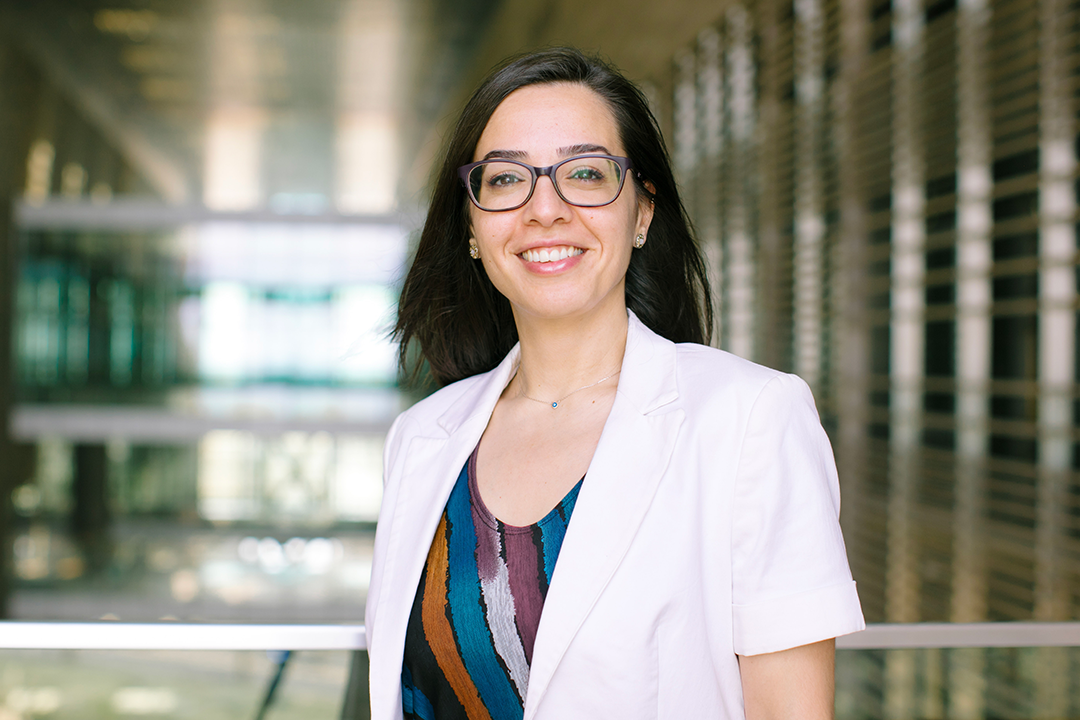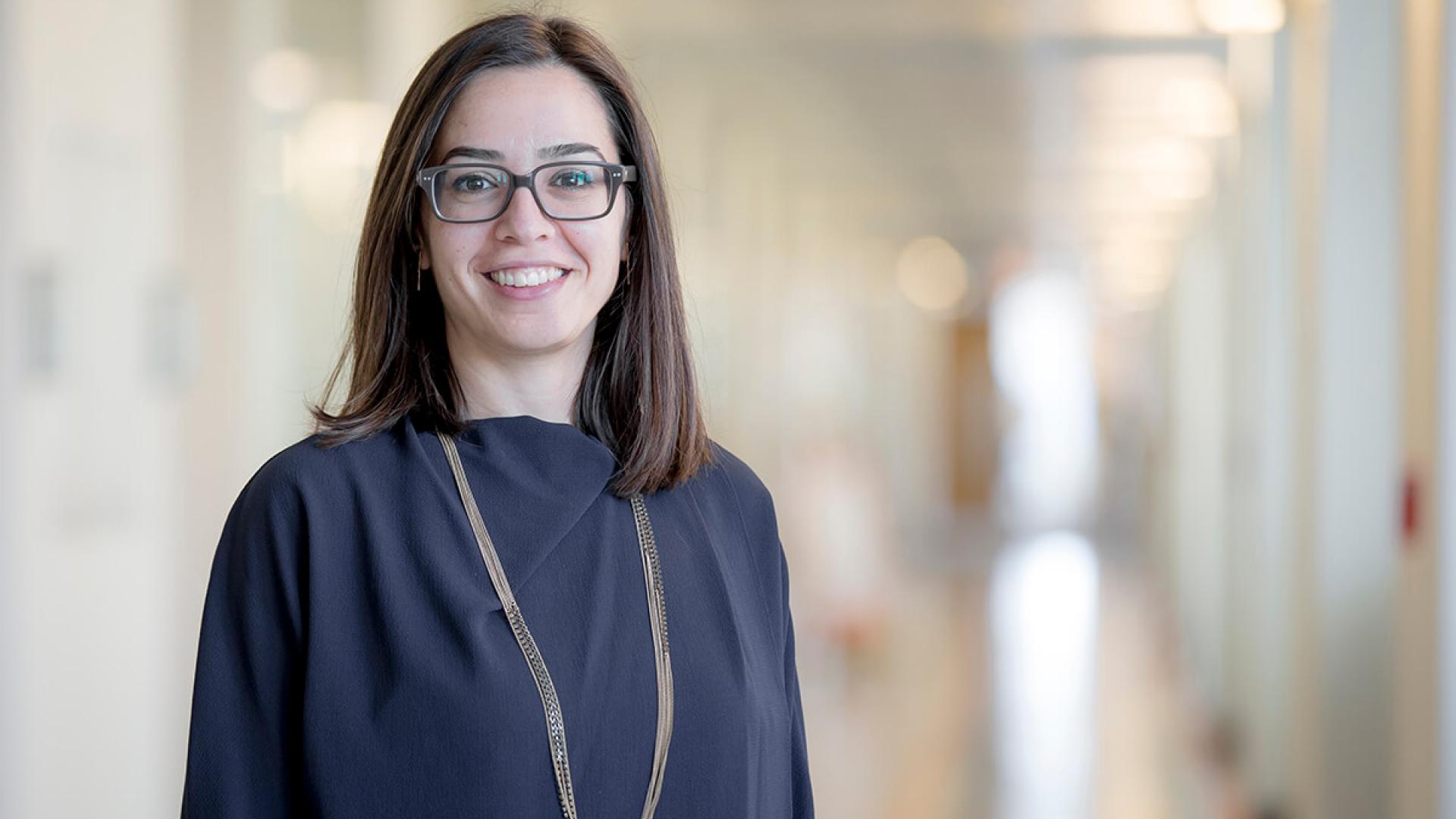Professor Sahika Inal named Royal Society of Chemistry fellow

Portrait of Sahika Inal, KAUST associate professor of bioengineering and Fellow of the Royal Society of Chemistry. Photo: Anastasia Serin, KAUST
Sahika Inal, associate professor of bioengineering at KAUST, has been named a Fellow of the Royal Society of Chemistry (RSC) in recognition of her pioneering work in the field of medical diagnostics.
The RSC is the United Kingdom's professional body for chemists, and the largest organization in Europe for advancing the chemical sciences. With the appointment comes an opportunity for Inal to showcase her research, and network with some of the world's most influential scientific minds.
"I was amazed when I found out," she said. "I am also not a chemist. My work involves taking chemistries and creating new applications based on these chemical structures, and to see that recognized is an immense source of pride. The RSC has huge links and reach, and I want to use that to make a difference in biomedical engineering, a field that grows hand in hand with the advances in chemical sciences."
Inal's work predominantly involves the design of electronic devices that can efficiently communicate with biological systems. Her research is largely framed around the study of organic electronic materials and design of devices relying on these materials. These devices address research and clinical health monitoring and therapy needs.
The importance of her work has been highlighted during the past year in light of the COVID-19 pandemic, which shone a spotlight on the critical nature of quick and efficient diagnostics.
Inal and another KAUST team led by Stefan Arold reapplied a solution they were working on in relation to antibiotic resistant bacteria to create a sensor capable of detecting SARS-CoV-2 within a few minutes, far faster than the qRT–PCR method, which requires heavy equipment and specialized operators.
Making a difference
The opportunity to develop diagnostic devices that can benefit human health is ultimately what drives Inal and her career ambitions. It is work such as this that caught the attention of the RSC.

"When I undertook my PhD in experimental physics at the University of Potsdam in 2009, I knew I wanted to make a direct impact on people's lives," she commented. "My mother was unwell at the time and could have benefitted from more efficient, faster diagnostics, and so this also prompted a determination to apply my engineering knowledge to a good cause. There are huge advances that can be made to outdated medical diagnosis practices, and I want to play a part in that with my work at KAUST."
The decision to pursue an academically-driven career was a late one – Inal was not the typical science researcher who played with test tubes as a child.
"I did always have a curiosity about how things worked," she added. "My earlier education years were shaped by a desire to create solutions to problems, which is why I initially studied engineering."
Back then, Inal could not have foreseen where her research would take her today.
She is especially interested in ionic-electronic conduction in organic electronic materials, with much of her work exploring the potential of these materials for recording biological signals and modulating biological events. While investigating transport in organic electronics, she functionalizes these materials to make seamless interfaces with human body and bodily fluids.
Reaching people in the real world
KAUST offers the opportunity for Inal to pursue this and many other lines of research. After completing her PhD in 2013, she joined KAUST three years later.
"I was well aware of KAUST's reputation before I joined," Inal said. "I have always been impressed by the infrastructure and diversity of science that takes place here. This is important to me because my work is very much interdisciplinary, and so to have access to the resources, facilities and expertise to do it all was the number one reason I am here. The six years have flown by. I have enjoyed it immensely, although the hot weather is sometimes too much!"
Looking ahead, Inal is laser focused on developing tools that can raise the bar in the field of diagnostics. Although not commercially driven, the end goal of seeing her solutions and innovations in the real world as far and wide as possible is a major motivator.
"Devices that facilitate on-the-spot diagnosis have the potential to transform the way we detect disease and deliver medical treatments around the world," she added. "I'm driven each day by the dream of seeing my devices used by people in need."
Inal is already extremely active in getting her ideas and research out to the scientific community. She has more than 92 peer-reviewed papers published and nine patents filed, and is a regular presenter of keynote and invited presentations at international conferences and universities around the world.
Now that she has become a Fellow of the Royal Society of Chemistry, it is fair to say that Inal is one step closer to realizing her dream, with numerous opportunities ahead.

